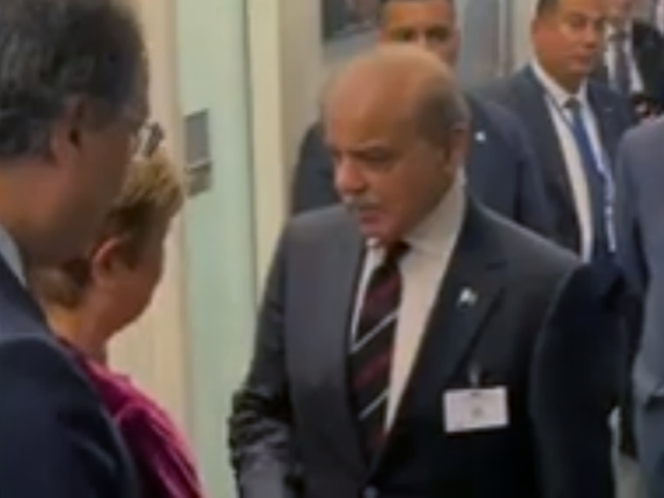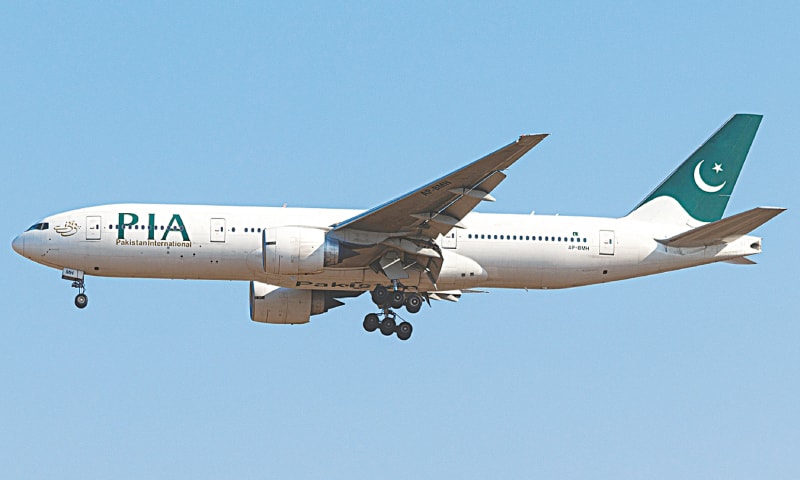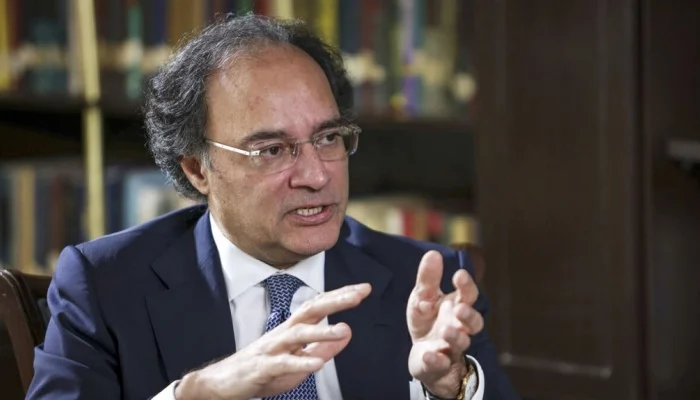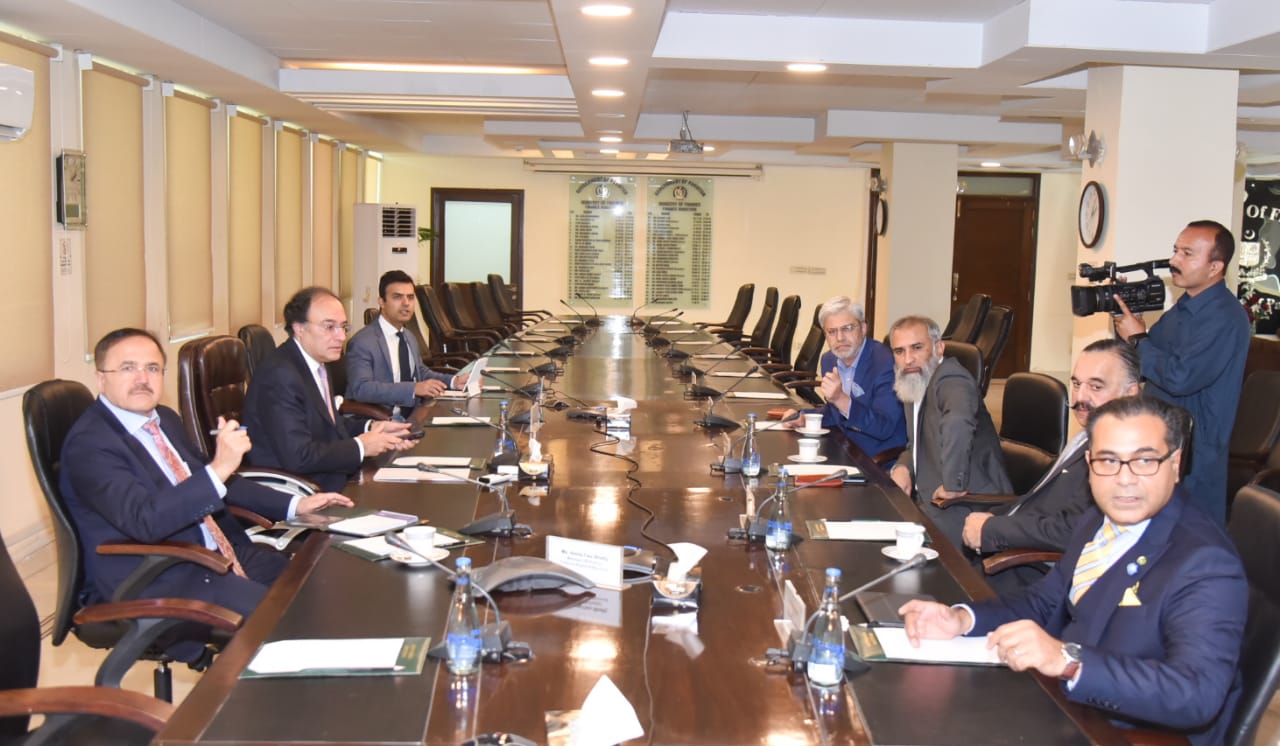PTBP Web Desk
The International Monetary Fund (IMF) Managing Director, Kristalina Georgieva, has declared that the country’s economy is “on a sound path” due to the substantial reforms undertaken by the government. During her meeting with Pakistan’s Prime Minister Shehbaz Sharif in New York, Georgieva congratulated the government and the people of Pakistan for their commitment to homegrown reforms, which have started to yield positive results.
“We have completed the review of the programme very successfully,” Georgieva remarked. “I want to congratulate the government of Pakistan and the people of Pakistan for moving forward with the home-defined, Pakistan-owned reforms, and they are bringing fruits. Growth is up, inflation is down, and the economy is on a sound path.”
The meeting followed the IMF Executive Board’s approval of Pakistan’s 37-month Extended Fund Facility (EFF) arrangement, which totals approximately $7 billion. This EFF, announced on Wednesday, is expected to help Pakistan cement macroeconomic stability and pave the way for stronger, more inclusive, and resilient growth. The agreement follows a staff-level deal reached on July 12 between the Pakistani authorities and the IMF team.
The IMF’s approval of the $7 billion EFF highlights the global lender’s confidence in Pakistan’s ongoing reform process. The reforms are designed to improve Pakistan’s economic foundations, enhance fiscal policies, and establish the necessary conditions for long-term growth. In particular, the EFF aims to promote economic resilience, ensuring that Pakistan’s financial stability can withstand internal and external shocks.
During the conversation with Prime Minister Shehbaz Sharif, Georgieva emphasized the importance of Pakistan’s self-defined reform agenda. “The reforms are homegrown and Pakistan-owned, which is critical for sustainable development,” she noted. The IMF chief underscored the importance of these reforms, not only in stabilizing the economy but also in ensuring inclusive growth that benefits all segments of society.
When asked about how these reforms would benefit Pakistan’s poorer populace, Kristalina Georgieva expressed optimism. She pointed to the government’s efforts to ensure that the benefits of economic reforms reach those who need them the most. “I do sense this trickle-down effect is happening,” she said, explaining that the government’s tax reforms target the wealthier segments of society while strengthening social welfare programs like the Benazir Income Support Program (BISP) to support the underprivileged.
This approach aims to reduce inequality and uplift those at the bottom of the socio-economic ladder. By focusing on expanding the tax base and implementing targeted social programs, Pakistan hopes to address persistent issues of poverty and inequality that have historically hindered its economic progress.
Pakistan’s reform agenda has also received praise from other international organizations. The Asian Development Bank (ADB) echoed the IMF’s sentiments, stating that the economic reform program supported by the IMF is likely to accelerate growth in Pakistan. The ADB’s September report, “Asian Development Outlook,” projects that Pakistan’s economy will grow by 2.8% in FY2025 as a result of the comprehensive reforms.
The ADB report further noted that private investment in Pakistan is expected to rebound, driven by more favorable macroeconomic conditions, including better access to foreign exchange. This improvement will positively impact key sectors like manufacturing and services, spurring growth and job creation. The ADB expects inflation to fall significantly as well, contributing to a more stable and predictable economic environment.
The success of Pakistan’s economic reforms is not just about numbers but also about creating an environment where investment can thrive, and the private sector can play a leading role in driving growth. Some of the key reforms implemented under the IMF-supported program include:
Tax Reforms: Pakistan is working to broaden its tax base by targeting higher-income individuals and businesses. This move is aimed at increasing tax fairness, enhancing revenue collection, and reducing the fiscal deficit. It also allows for increased spending on social programs and infrastructure.
Monetary Policy Adjustments: The State Bank of Pakistan has adopted prudent monetary policies to control inflation. In FY2024, inflation receded to single digits, creating a more stable environment for businesses and consumers alike.
Social Welfare Programs: With a focus on inclusivity, the government has strengthened social welfare programs like the Benazir Income Support Program to provide targeted assistance to the poor. This effort ensures that economic growth benefits all segments of the population, not just the affluent.
Infrastructure Development: Inadequate infrastructure has long been a barrier to Pakistan’s economic growth. The reform agenda focuses on increasing infrastructure investment to enhance productivity, facilitate trade, and create jobs.
With the approval of the $7 billion EFF, Pakistan is well-positioned to capitalize on the progress made thus far. The country’s economic growth is projected to continue its upward trajectory, with inflation expected to remain under control. The reform agenda, supported by both the IMF and ADB, is designed to ensure that this growth is inclusive and sustainable, benefiting all segments of society.
The IMF has also highlighted the need for Pakistan to continue strengthening its macroeconomic policies and focus on long-term structural reforms. These reforms will be essential in addressing the challenges of poverty, inequality, and low investment that have historically held the country back.
Prime Minister Shehbaz Sharif expressed his gratitude to the IMF for its continued support and commitment to Pakistan’s economic development. He reaffirmed his government’s dedication to implementing the necessary reforms and fostering an environment that promotes sustainable growth and investment.




